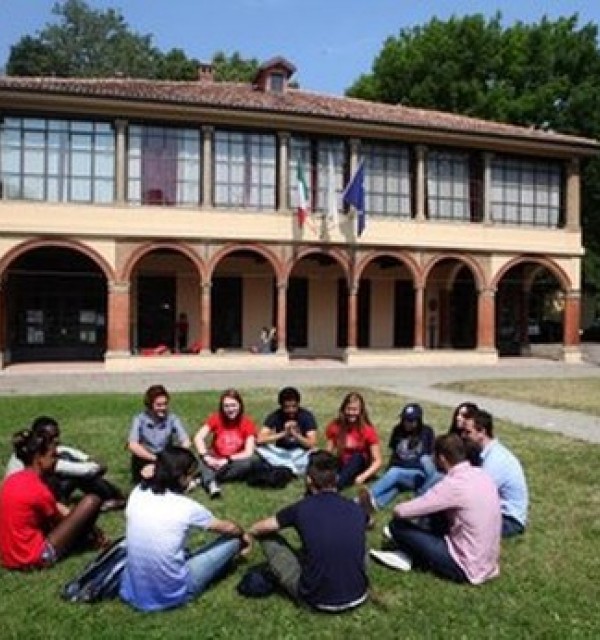Risk Analysis Master's Programme
Study programme description for study year 2021-2022
Credits (ECTS)
120
Studyprogram code
M-RISGOV
Level
Master's degree (2 years)
Leads to degree
Master of Science
Full-/Part-time
Full-time
Duration
4 Semesters
Undergraduate
No
Language of instruction
English
Learning outcomes
After having completed the master’s programme in Risk Analysis, the student shall have acquired the following learning outcomes, in terms of knowledge, skills and general competences:
Knowledge
K1: The candidate has advanced knowledge within the academic field of risk science, related to concepts, theories, principles, approaches, methods and models for understanding, assessing, characterising, communicating, managing and governing risk, safety and security.
K2: The candidate can apply this knowledge to new types of problems and issues, in particular practical cases and problems in society, industry, business, etc.
Skills
S1: The candidate can plan and conduct analyses (interpreted in a wide sense) of risk, safety and security, using the above knowledge.
S2: The candidate can develop methods and models within Risk Analysis.
S3: The candidate can guide decision makers and other stakeholders on how to understand, assess, manage and govern risk, safety and security.
S4: The candidate can use relevant methods for research and scholarly work in an independent manner.
S5: The candidate can analyse and deal critically with various sources of information and use them to structure and formulate scholarly arguments.
S6: The candidate can evaluate critically principles, methods and models that are used within risk analysis.
S7: The candidate can carry out an independent, limited research or development project under supervision and in accordance with applicable norms for research ethics.
General Competence
G1: The candidate can analyse relevant risk, safety and security problems.
G2: The candidate is able to evaluate the applicability of different managerial tools and approaches relevant to risk analysis and examine the short- and long-term effects of different practices and solutions.
G3: The candidate can apply his/her knowledge and skills for tackling risk analysis issues.
G4: The candidate is familiar with - and can use - the current terminology of the field.
G5: The candidate can communicate about scientific issues within the field, both with
specialists and the general public.
G6: The candidate can contribute to new developments within the field.
Career prospects
Depending on the student’s background and on the profile created through selection of elective subjects, graduated candidates qualify for a range of different jobs. Both in industry as well as in public sector, there is generally a high demand for people with strong competence in risk assessment and risk management. Graduated candidates typically find work as analyst, advisors, consultants, or managers.
A completed master’s degree with a minimum average grade of B and a minimum grade of B on the master’s thesis may qualify for admission to the PhD programme in Science and Technology with specialisation in Risk Management and Societal Safety at the University of Stavanger.
Course assessment
Degree programmes and courses are revised annually. Evaluation is a central component of the UiS quality system. Courses in the degree are subject to student evaluation in accordance with the university’s quality management system.
Study plan and courses
Enrolment year: 2021
-
Compulsory courses
-
RAG500: Foundations of risk analysis and risk science
Year 1, semester 1
Foundations of risk analysis and risk science (RAG500)
Study points: 10
-
RAG510: Risk, Society and Governance
Year 1, semester 1
-
RIS525: Risk Assessment, Economic Evaluation and Decisions
Year 1, semester 2
Risk Assessment, Economic Evaluation and Decisions (RIS525)
Study points: 10
-
RIS630: Risk Management, Communication and Policy
Year 1, semester 2
-
RAGMAS: Master`s Thesis Risk Analysis and Governance
Year 2, semester 3
-
-
Specializations
-
Risk Analysis and Governance
-
Risk Analysis and Governance - Compulsory courses
-
MEE140: Philosophy of Science and Research Methods
Year 1, semester 1
-
RIS610: Selected topics in risk management
Year 1, semester 2
-
-
Courses at UiS or exchange 3rd semester
-
Courses at UiS 3rd semester
-
Recommended electives 3rd semester
-
RIS535: Terrorism, security and resilience
Year 2, semester 3
-
RIS615: Applied Risk Analysis
Year 2, semester 3
-
SAM530: Decisionmaking in Emergencies
Year 2, semester 3
-
SAM550: Energy, Societal Safety and Sustainable Development
Year 2, semester 3
Energy, Societal Safety and Sustainable Development (SAM550)
Study points: 10
-
-
Other electives 3rd semester
-
BYG650: Practical training in City and Regional Planning
Year 2, semester 3
Practical training in City and Regional Planning (BYG650)
Study points: 10
-
RIS650: Enterprise risk and information security
Year 2, semester 3
-
SAM560: International Humanitarian Emergencies
Year 2, semester 3
-
-
-
Exchange 3rd semester
-
Exchange 3rd semester
-
-
-
-
Engineering Risk Analysis and Management
-
Engineering Risk Analysis and Management - Compulsory courses
-
STA500: Probability and Statistics 2
Year 1, semester 1
-
RIS510: Reliability Analysis
Year 1, semester 2
-
-
Courses at UiS or exchange 3rd semester
-
Courses at UiS 3rd semester
-
Recommended electives 3rd semester
-
RIS520: Technical safety
Year 2, semester 3
-
RIS615: Applied Risk Analysis
Year 2, semester 3
-
RIS650: Enterprise risk and information security
Year 2, semester 3
-
STA510: Statistical modeling and simulation
Year 2, semester 3
-
-
Other electives 3rd semester
-
IND500: Investment Analysis
Year 2, semester 3
-
IND510: Project Management
Year 2, semester 3
-
OFF515: Offshore Field Development
Year 2, semester 3
-
STA530: Statistical Learning
Year 2, semester 3
-
-
-
Exchange 3rd semester
-
Exchange 3rd semester
-
-
-
-





